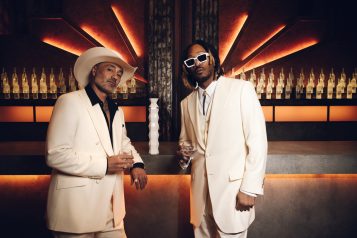…And were not talking about Bryant. Devotees of Miami dining hot-spots Prime One Twelve, 8 oz. Burger Bar, Bancroft Supper Club, China Grill, Gordon Biersch, The Delano’s Plat Bleu, and Meat Market are in for a lesson in false advertisement. Several of these restaurants are well noted for their high end cuisine and celebrity clientele, yet recent developments have brought to life the truth behind such menu items as Kobe beef burgers, hot dogs, and sliders with one slight problem: the meat isn’t really Kobe beef. Oops.
So what is it that is skating by under the guise of Kobe beef? Let’s investigate. “Kobe” is generally beef from a breed of the Japanese Wagyu cattle (Wagyu actually means Japanese cattle), said cattle was imported to Japan to enhance rice crops. As cattle cuts, they are fatty and marbled, and popular cuts, like the filet, have a succulent and soft taste. The beef is also pricey, at $16-$30 an ounce.
Here’s where the discrepancy in products begins. In the mid 1970s, some American farmers wanted a similar product that was less expensive. They brought over some of the Wagyu cattle and bred them with our popular Angus cattle. The byproduct looks almost identical to a purebred Wagyu, with slight differences in the shading and flavor of the meat. Significantly, that meat costs $4-$10 an ounce—a fraction of the real thing. A similar product is made and utilized out of Australia as well.
For Prime One Twelve, the owner Myles Chefetz says they didn’t know that labeling beef had to be so specific, and now they will clarify the product’s true origin on the menu. Ironically, Prime One Twelve is also a place selling the real deal—the Japanese A5 Kobe Filet, for $30 per ounce, with a two-ounce minimum. They even have “birth certificates” for the meat so that the lineage can be traced to prove authenticity.
For the Bancroft Supper Club, manager Karen Martin says their invoices come with the Wagyu name Kobe, so they call it Kobe—though now they will work on a description change. Bill Heckler of the Gordon Beirsch chain is also working on the change for new menus due out in January.
Yet some owners are sticking by their seemingly careless use of adjectives—Sean Brasel of the Meat Market says this his customers know that items like a Kobe skirt steak (for $35, in comparison to the six-ounce Japanese A5 Kobe for $95) clearly aren’t Kobe because of their price, and elaborating that on the menu would be “redundant.” At the Delano, Plat Bleu chef Maria Manso says that the menu comes from corporate (listed as Kobe), says it’s the server’s responsibility to explain the truth behind the beef for customers.
According the Jennifer Meale, the communications director for the Department of Business and Professional Regulation, the resolution for the problem simply lies in some rewording. “The use of the term Kobe beef on a menu or special board is misrepresentation,” says “Use of the terms Wagyu beef, American-style Kobe beef, Australian-style Kobe beef, and (country of origin) Kobe beef are acceptable, providing the operator can provide supporting invoices and product to match.”
Via: Miami New Times


















